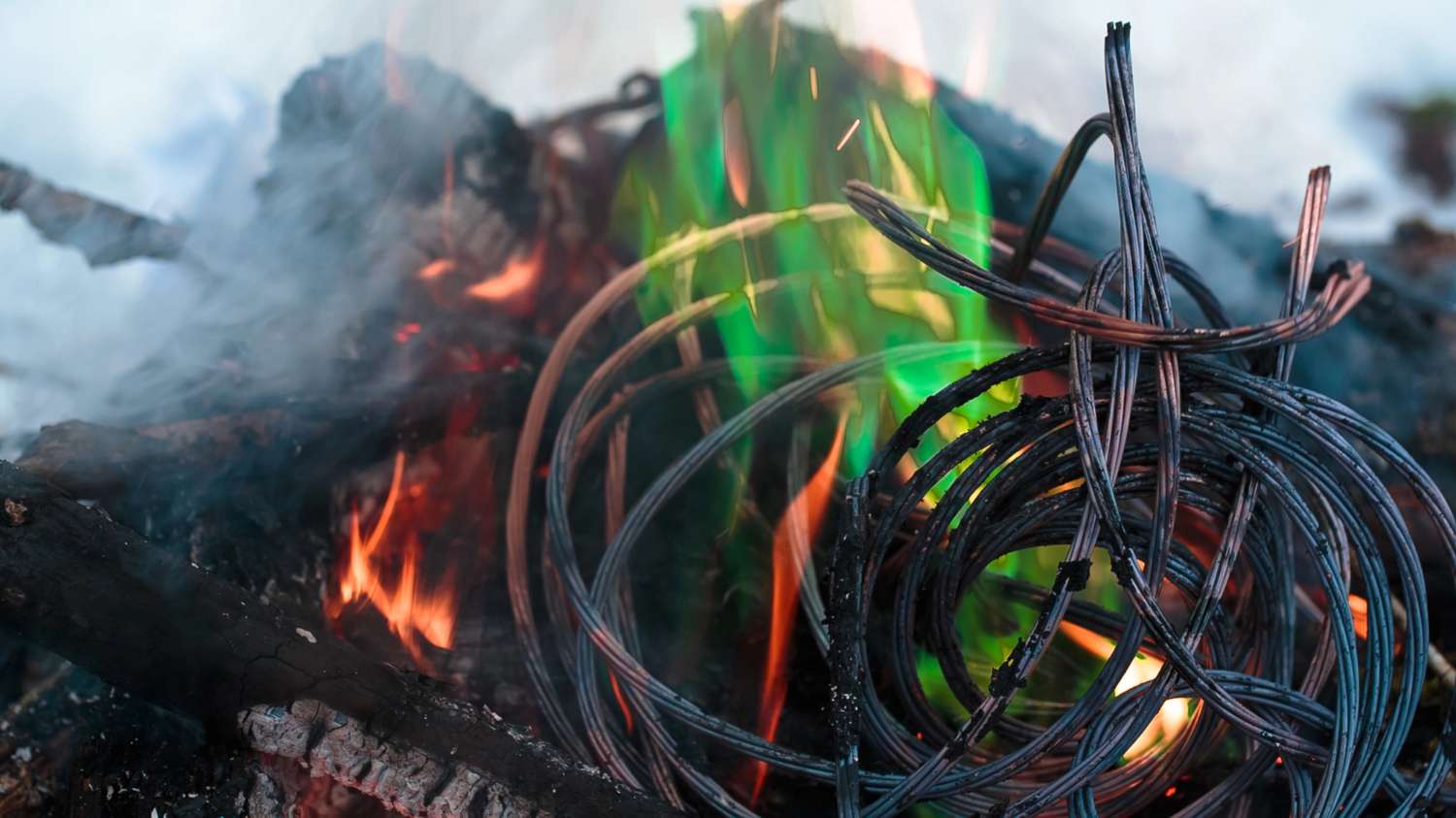Saltwater flooding poses numerous electrical fire risks due to its corrosive nature. When saltwater comes into contact with electrical wiring and components, it can cause corrosion and deterioration, increasing the likelihood of electrical faults and fires. The salt in the water can also conduct electricity more effectively than fresh water, leading to an increased risk of electric shocks.
In this article, we will explore the specific impact of salt water flooding on electrical fires, including the potential causes, hazards, and preventive measures that can be taken to mitigate the risk and ensure the safety of affected electrical systems.
Electrical Fire Risks from Salt Water Flooding
In addition to the immediate electrical risks, saltwater can cause corrosion in a building’s core materials, such as steel support structures and concrete foundations. This corrosion weakens the structural integrity of the building, potentially increasing the risk of a fire.
Furthermore, wooden parts of a structure can be significantly damaged by saltwater, leading to compromised structural stability and a heightened fire risk.
Another danger of saltwater flooding is the potential for mold growth in the affected areas. Mold can thrive in damp, salty environments and can compromise the integrity of electrical systems, further increasing the risk of electrical fires.
Saltwater flooding presents a myriad of electrical fire risks, including corrosion of electrical components, increased likelihood of electric shocks, compromised building materials, and mold growth. It is crucial to address these risks promptly and thoroughly to mitigate the potential for electrical fires in saltwater-damaged areas.
Causes of Electrical Fires from Salt Water Flooding
Salt water flooding can lead to serious electrical fires due to the corrosive and conductive nature of salt water. When electrical systems and equipment become exposed to salt water, it can cause electrical components to malfunction, short circuit, and ultimately result in fires. Understanding the causes of electrical fires from salt water flooding is crucial in preventing potential disasters and safeguarding infrastructure and equipment.
Corrosion of Electrical Components
One of the main causes of electrical fires from salt water flooding is the corrosion of electrical components. Salt water is highly corrosive and can quickly deteriorate the insulation, wiring, and other electrical elements, leading to malfunctions and potential ignition. The corrosion weakens the integrity of the electrical systems, making them more prone to short circuits and overheating.
Conductive Nature of Salt Water
Another significant factor in the occurrence of electrical fires from salt water flooding is the conductive nature of salt water. When salt water comes into contact with electrical equipment, it creates a pathway for electrical currents to flow, increasing the risk of short circuits and electrical arcing. This conductivity can lead to an increased likelihood of fires breaking out in affected areas.
Damage to Electrical Systems and Components
When addressing damage to electrical systems and components, it is crucial to conduct a thorough survey of the system. Start by checking all electrical components, including switches, low-voltage protective components, and circuit breakers, to ensure they are not impaired. Pay close attention to the grounding and bonding systems, as any damage to these could compromise the safety and functionality of the electrical system. It is important to ensure that the ‘grounding’ system is undamaged and fully operational to safely restore power to the electrical system.
In the event of water damage, seek advice from a water damage specialist on salvaging heating or cooling equipment that is connected to the electrical system. It is essential to prioritize safety and take all necessary precautions when dealing with damaged electrical systems. By conducting a thorough survey and seeking expert advice, you can effectively address and mitigate damage to electrical systems and components.
Impact of Salt Water Flooding on Electrical Fires
When salt water floods areas with electrical infrastructure, it poses a unique set of challenges and risks, particularly with regards to electrical fires. Salt water can cause rapid corrosion and degradation of electrical equipment, leading to potential malfunctions and short circuits. This can increase the likelihood of electrical fires in affected areas.
Effects on Electrical Systems and Components
Water damage on electrical systems and components can have severe consequences. Moisture and water can corrode and short-circuit electrical wiring, outlets, and switches, leading to potential fire hazards and electrical shock risks. Attempting to re-energize water-damaged equipment without proper evaluation by qualified electricians can result in further damage and pose a significant safety threat.
Floodwaters can compromise the integrity and performance of electrical equipment, increasing the risk of malfunction or failure. Damaged wiring caused by flooding can lead to power surges, damaging sensitive electronics and devices. Proper evaluation and repair by certified electricians are crucial to ensure the safety and functionality of the electrical system.
Furthermore, flooding can impact the grounding and bonding systems, compromising their effectiveness and leading to potential electrical hazards. Thorough inspection and evaluation of grounding and bonding systems are essential to mitigate the risks associated with water damage.
The potential effects of water damage on electrical systems and components are serious and require prompt and professional assessment. Risks of re-energizing water-damaged equipment, the impact of floodwaters on electrical equipment, and the importance of thoroughly inspecting grounding and bonding systems should not be taken lightly to ensure the safety and functionality of the electrical system.
Exposure to Ocean Water and Fresh/Salt Water Mixtures
Exposure to ocean water and fresh/salt water mixtures can result in various issues and damages.
Electrical components are at risk of corrosion and short circuits due to the conductive properties of salt water. Building foundations can weaken and deteriorate from the corrosive effects of salt water. Appliances may experience damage to their internal mechanisms and electrical connections when exposed to salt water. Fresh water can also cause electrical components to short circuit and corrode if not properly dried and cleaned.
Mold growth is a potential issue with exposure to both salt and fresh water, as these environments provide ideal conditions for mold to thrive. Additionally, salt water can lead to rapid deterioration of building materials such as wood and metal.
Overall, exposure to ocean water and fresh/salt water mixtures can result in significant damages to electrical components, building foundations, appliances, and can create an environment conducive to mold growth. It is essential to take proactive measures to mitigate these risks, such as proper waterproofing and regular maintenance to prevent potential long-term damages.
Prevention Techniques for Avoiding Electrical Fires from Salt Water Flooding
When dealing with the potential dangers of salt water flooding and electrical systems, it is crucial to implement prevention techniques to avoid electrical fires. Salt water is a highly conductive substance that can greatly increase the risk of electrical hazards, making it important to take proactive measures to protect both property and personal safety.
1. Electrical System Elevation:
One of the key prevention techniques for avoiding electrical fires from salt water flooding is to elevate electrical equipment and systems above potential flood levels. By positioning electrical panels, outlets, and wiring above the expected waterline, the risk of short circuits and electrical fires can be significantly reduced.
2. Waterproof Sealing and Insulation:
Another effective strategy is to use waterproof sealing and insulation materials for electrical components. This can help to minimize water intrusion and protect the integrity of the electrical system in the event of salt water flooding, reducing the likelihood of electrical fires.
3. Regular Maintenance and Inspections:
Regular maintenance and inspections of electrical systems are essential for identifying and addressing any potential vulnerabilities that could be exacerbated by salt water flooding. By addressing any issues proactively, the risk of electrical fires can be mitigated.
By implementing these prevention techniques, the risk of electrical fires from salt water flooding can be significantly reduced, safeguarding both property and personal safety.
What Should Property Owners Do If Their Property is Exposed to Saltwater?
If your property has been affected by fire damage caused by saltwater, it is crucial to take the necessary steps to address the issue properly. First, you should immediately contact a reputable restoration company specializing in saltwater damage cleanup and repair. They will have the expertise and equipment needed to properly restore your property.
While waiting for the restoration company to arrive, it is important to document the damage for insurance purposes. Take photos and keep detailed records of the extent of the damage to support your insurance claim.
Before re-entering the property, ensure that it is safe to do so. Saltwater can cause corrosion and structural damage, so it is essential to have the property inspected by professionals to ensure it is safe for occupancy.
It is critical to get an expert opinion on whether submerged or partially submerged systems, such as electrical wiring and HVAC systems, need to be replaced. Don’t solely rely on the assessment of an insurance adjuster.
Consider the impact of saltwater on even small items, such as a box of screws – would you use these items after being dunked in saltwater? It is equally important to ensure that all affected materials and systems are properly cleaned or replaced for the safety and integrity of the property.
Once the property is deemed safe, start the rebuilding process with the guidance of the restoration company. By following these steps and seeking expert opinions, you can address fire damage caused by saltwater and ensure your property is properly restored.
You May Also Like:
- Property Damage Prevention: 7 Tips On Maintaining Your Florida Home’s Exterior To Help You Minimize Property Damage
- Roofing Contracts: Key Considerations for Storm Damage Jobs
- Understanding Wind-Driven Rain Damage and Protection Strategies for Florida Homeowners
- Explained: The FEMA Community Rating System (CRS) for Local Communities



